From Arctic tundra to Saharan sands in seconds '“Â inside Sheffield's hidden world at the cutting edge of climate change research
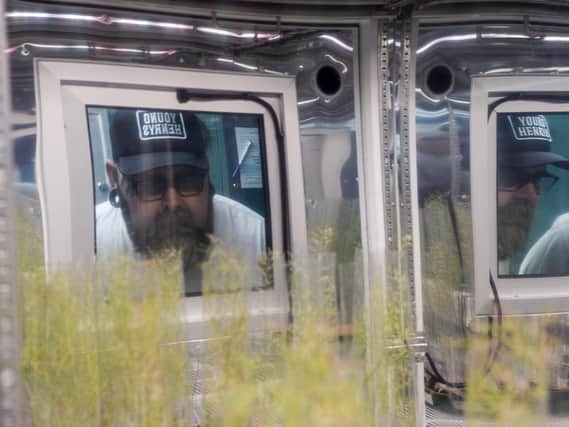

Step inside, away from the bustle of campus life, and behind one door you are confronted by an Arctic blast while another opens onto the sweltering heat of the Sahara.
This Narnia-esque wonderland - teeming with exotic plants, as well as those more commonly found on British soils -Â is at the forefront of efforts to stave off global hunger as climate change increasingly plays havoc with crop production around the world.
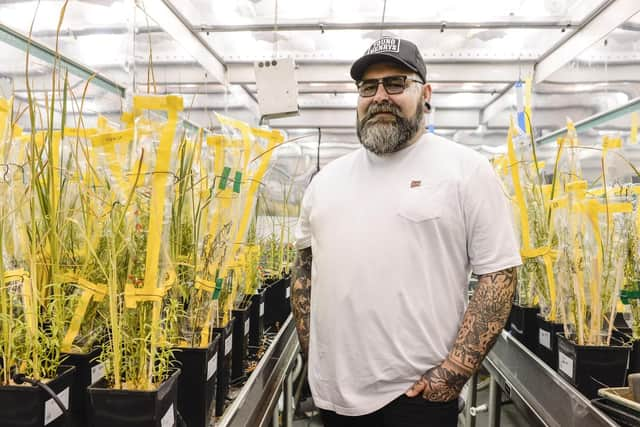

Advertisement
Hide AdAdvertisement
Hide AdI'm shown around these futuristic facilities by Duncan Cameron, professor of plant and soil biology, who is passionate about the work taking place here and its practical applications around the globe.
Research into cider threat
Those range from helping plants withstand the withering heat of the Omani desert, where he says food prices quadruple during the summer, to preventing dastardly apple canker stemming the flow of cider in Herefordshire.
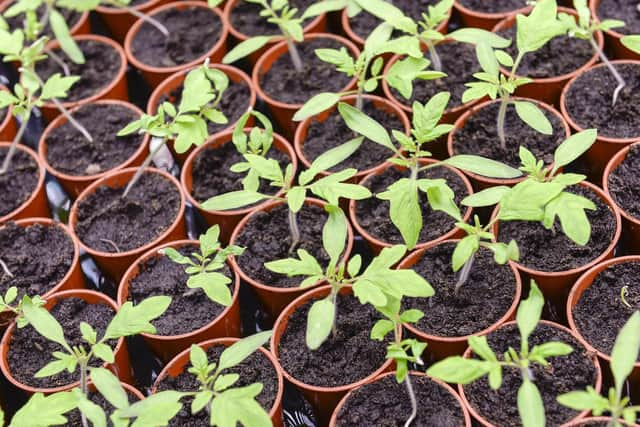

Professor Cameron is a far cry from your stereotypical university don, at least when it comes to his appearance, sporting heavily tattooed arms, '˜flesh tunnels' stretching his ear lobes and a heavily-groomed beard.
But that's not stopped him becoming a leading name in his field, so much so that his expertise was called upon when the 2016 Paris climate pact was drawn up.
Advertisement
Hide AdAdvertisement
Hide AdThe university's world-leading plant growth facilities comprise the Sir David Read Controlled Environment Facility and the Plant Production and Protection (P3) translational biology centre, both beside the Arts Tower, along with the Arthur Willis Environment Centre in Crookesmoor.
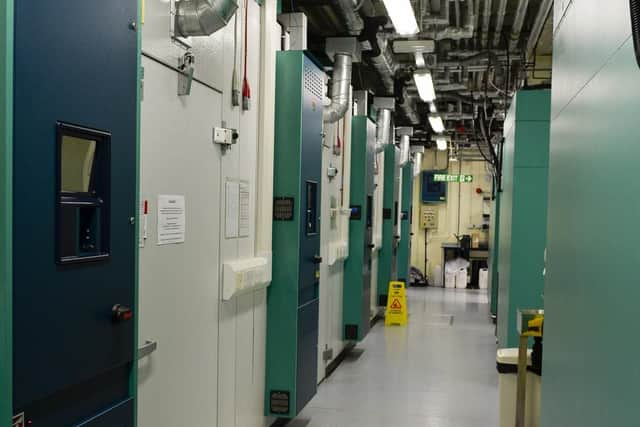

Testing impact of climate change on UK farming
They are under negative pressure, maintained by an air lock, to prevent anything escaping '“ a necessary precaution given much of the testing involves pathogens which could devastate crops if unleashed in the real world.
Inside stand dozens of huge cabinets with hefty doors like those found on meat lockers, each of which can simulate conditions from the equator to the poles, with a temperature range of -30C to 40C and the ability to vary oxygen and carbon dioxide levels.
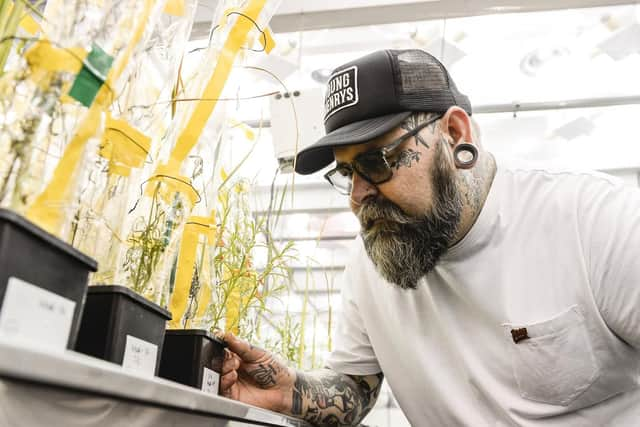

'The facilities are capable of simulating any environment on the planet, past, present and future,' explains the professor.
Advertisement
Hide AdAdvertisement
Hide Ad'It means we can test future scenarios with the kind of diseases expected to come to the UK under climate change, as well as investigating how different crops grow in conditions around the world.
'We have a project at the moment simulating conditions in the Omani desert, where food prices quadruple in the summer because they can't grow anything.
'The findings should enable producers to grow food in the desert year round without releasing any CO2.'
Stopping '˜witch weed' making people go hungry
The first room we enter marks a significant step up in temperature from early autumn in Sheffield, mimicking, as it does, a rice field in Africa, under attack from the evil-sounding '˜witch weed'.
Advertisement
Hide AdAdvertisement
Hide AdThis parasite, I'm told, can lie dormant for up to 30 years before latching onto a plant and sucking it dry of nutrients, so stopping it could have huge implications.
'In Africa, hundreds of thousands of people go hungry every year because the witch weed steals their food,' explains Professor Cameron.
Another room has a more familiar look, containing rows of cabbages and tomatoes, which among other British crops are increasingly under threat from mildews and moulds.
The labs strike me as the ideal setting for a nightmarish sci-fi disaster movie, and, based on what my guide tells me, that's not too far from the truth.
Advertisement
Hide AdAdvertisement
Hide Ad'When I came to Sheffield in the 90s, we were all very optimistic as environmental scientists that we could stop climate change in its tracks but now we know that's not going to happen,' he says.
'Some of my colleagues are doing really exciting work using soils to capture carbon and take it out of the atmosphere.
'But the rest of the work is pretty much focussed on accepting climate change is happening, it's going to get worse and we need to ready ourselves for the consequences.
'˜Unfolding global disaster'
'I talk about the soil crisis (more on that in a bit), food security and climate change as an unfolding global disaster.
Advertisement
Hide AdAdvertisement
Hide Ad'I've been accused by the right-wing press of being a peddler of university disaster pornography but I take exception to that because we're walking into an environmental disaster.
'When we get very high levels of CO2 our crops evolve to adapt and start doing some weird and wacky things.
'That includes losing their ability to resist pathogens, which is something we should all be worried about.'
Professor Cameron has great sympathy for the farmers, who he says are doing their best with little support from policy makers to help them adopt more sustainable practices.
Advertisement
Hide AdAdvertisement
Hide AdTheir margins are being squeezed ever tighter, he explains, with spending on food accounting for just 10 per cent of the household budget today compared with around 25 per cent in the 1970s.
The effects of climate change are being exacerbated by what Professor Cameron calls the '˜soil crisis' '“ the degradation of earth through years of intensive farming which has reduced its ability to hold water amid dry spells or capture it during heavy rain to prevent flooding.
New grant helping to cut carbon footprint
That's why the work he is doing '“Â much of it funded by some of the world's agricultural giants '“Â is so important when it comes to developing new crops and farming techniques, and to impressing upon policy makers the importance of sustainable farming.
Given his eco-friendly credentials, Professor Cameron has always felt a little uneasy about how the very work he and colleagues are doing to minimise and respond to climate change has itself been such a big source of carbon emissions due to the huge amount of energy needed to power the lights and control the temperature.
Advertisement
Hide AdAdvertisement
Hide AdThat's about to change thanks to an £829,000 grant from the Salix Energy Efficiency Scheme to install more energy efficient LED lighting, which can also better simulate sunlight, in the Sir David Read Controlled Environment Facility.
The investment means Professor Cameron and his colleagues can continue their groundbreaking work to prevent the world going hungry with a cleaner conscience.
The next big challenge could be helping to save the world's bananas from a deadly fungus called Panama disease which threatens to wipe out the world's most popular fruit.
You can see Professor Cameron in action as part of the university's Festival of the Mind, the annual celebration of ideas, culture and collaboration, which will run from September 20-30.
Advertisement
Hide AdAdvertisement
Hide AdHe is teaming up with musician Dean Honer, of the All Seeing I, and others for a family-friendly show combining dramatic live science demonstrations with music, 3D animations and graphics.
The Sound of Science will take place at Firth Hall on Friday, September 28, from 7pm-8.30pm, and Saturday, September 29, from 11am-12.30pm and 3pm-4.30pm.
